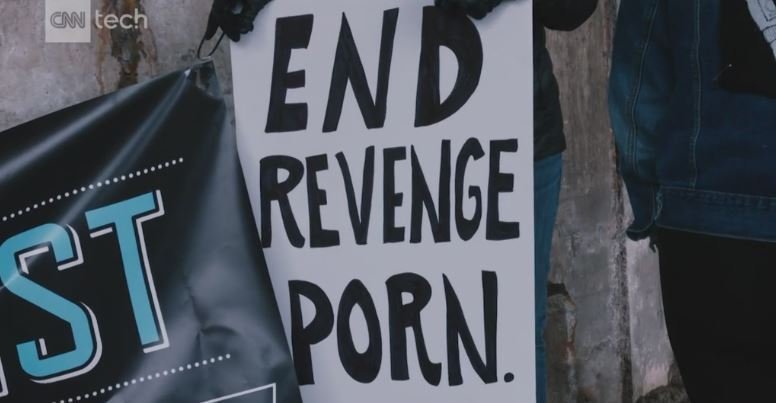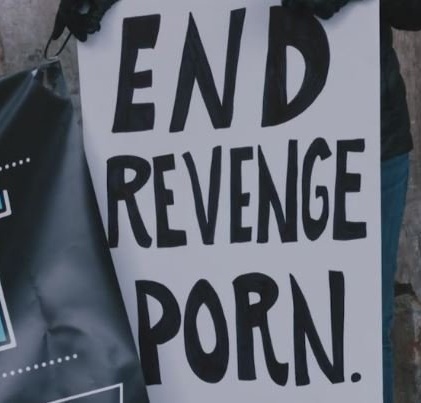
Contents
- 1 Revenge Porn and Criminal Law Using Legislation
- 1.1 Criminalisation of Revenge Porn in South African Law
- 1.2 Statutory Developments and Public Awareness
- 1.3 Media Representation of Child Victims, Accused, and Witnesses
- 1.4 Challenges in Media Compliance and Enforcement
- 1.5 Revenge Porn Involving Children: A Case of Child Pornography?
- 1.6 The Overlap Between Revenge Porn and Child Pornography Offences
- 1.7 The Role of Cyberbullying in Amplifying Harm
- 1.8 Child-Centric Approaches to Legal Protection
- 1.9 Conclusion
Revenge Porn and Criminal Law Using Legislation
Internet communication technologies together with social media platforms revolutionized the scope and nature of criminal offenses in South Africa especially related to sexual images. The non-consensual sharing of explicit content to humiliate others known as revenge porn has become a critical matter among different crimes. The criminalization of revenge porn behaviours through the Cybercrimes Act 19 of 2020 faces extensive challenges during law enforcement especially when protecting child victims.
The following essay studies how South African criminal law defines revenge porn cases and how media outlets portray child victims alongside their accused perpetrators and the legal parameters that apply to revenge porn which involves children as victims. It performs this assessment through the review of legislations and legal commentaries about the effectiveness of existing regulatory procedures (Musoni, 2019).
Criminalisation of Revenge Porn in South African Law
Core Legal Principles Underlying Criminalisation
The South African criminalization of revenge porn relies on core principles of criminal law which mainly consist of harm, legality and proportionality. Criminal law defines what counts as harmful conduct together with its authorized punishment regarding beliefs about human dignity and personal independence. Section 10 and 14 of the Constitution of the Republic of South Africa (1996) establish the protection for privacy and bodily integrity along with human dignity which revenge porn violates.
Criminal courts establish liability whenever offenders complete all three requirements of unlawful actions combined with responsible conduct and suitable mental capacity to emulate the law. Revenge porn actions qualify for punishment because they violate legal standards of both unlawful conduct and lack of consent in explicit material distribution.
The Cybercrimes Act 19 of 2020 became law in South Africa to make it illegal for any person to disseminate intimate data messages against the consent of their subject. By law an intimate image includes visual nudity and sexual content that lets others recognize the victim despite full name exposure. The penalty structure for this offence features two tiers: victim identity allows maximum two-year imprisonment along with a R150,000 fine whereas victim identification leads to maximum four-year imprisonment or a R300,000 fine (Naik, 2021).
Statutory Developments and Public Awareness
The Films and Publications Act 65 of 1996 started as a tool for adult content regulation but developers expanded its scope to include dangerous digital content. Over time the Act has received new amendments that connect its provisions with child safety standards and privacy protection legislation. The combination of public conversations on digital safety platforms and legal awareness initiatives has established proper guidelines for the state regarding technological abuse prevention and criminalization. The reforms established by law indicate an essential transition in society which demonstrates the development of legal processes to prosecute people who digitally abuse children and damage their mental and social standing (South African Government, 1996).
Media Representation of Child Victims, Accused, and Witnesses
Legal Framework for the Protection of Children’s Identities
Media references to children operate under legislation together with ethical standards to safeguard child dignity and support their best interests. The Constitution through Section 28(2) emphasizes that caring for children’s well-being takes priority in all child-related matters. The Criminal Procedure Act together with the Children’s Act 38 of 2005 implement provisions based on this principle that prevent media organizations from disclosing information that might expose child victims or witnesses or accused persons during criminal investigations.
Media organizations must abide by the law which prohibits them from using the names or images of underage offenders in crime reports. All protections outlined in the Children’s Act apply equally to children who serve as victims or witnesses or are accused. The similar protective measures exist for both cases of kidnapping and sexual assault situations. The South African Government has adopted measures which protect children through every stage of public disclosure particularly within traditional and social media platforms (South African Government, 2016).
Challenges in Media Compliance and Enforcement
The safeguards established by regulations do not result in uniform levels of compliance with the law. The sensationalistic treatment of cases involving minors in revenge porn situations leads to possible breaches between ethics and journalism. Children fall at risk of indirect identification because digital footprints that include shared images or usernames reveal their identities even if their explicit names or photographs remain absent. These findings suggest media organizations need to demonstrate ethical as well as legal alertness when reporting cases of such nature.
Revenge Porn Involving Children: A Case of Child Pornography?
Legal Definitions and Legislative Comparison
The legal determination requires exploration about whether revenge pornography actions involving children fall under South African child pornography statutes. Child pornography exists when a child participates in sexually explicit or suggestive actions either photographed or described specifically for sexual purposes according to the definition found in Criminal Law (Sexual Offences and Related Matters) Amendment Act 32 of 2007. The Films and Publications Act 65 of 1996 forbids South African citizens from possessing or creating or distributing materials that sexually exploit or depict children.
These legal definitions indicate that child-focused revenge porn content satisfies requirements for child pornography. While perpetrators do not necessarily seek sexual satisfaction from the actions their target conducts at times the material shows explicit sexual content depicting someone under the age of eighteen. Child pornography classification stands despite the absence of sexual motives in the case. A minor’s depiction in sexual content becomes a legal offense regardless of the offender maintaining that the images serve any legitimate purpose (South African Government, 2017).
The Overlap Between Revenge Porn and Child Pornography Offences
Minors who experience revenge porn face potential criminal charges under both the Cybercrimes Act and the stricter child pornography provisions of the Sexual Offences Act together with the Films and Publications Act. Sentencing consequences become more severe when child pornography offences are prosecuted because these carry harsher penalties. The systems allow prosecutors to decide which specific offenses best fit the given situation involving each case.
The judicial system possesses through this approach two parallel avenues of prosecution which ensures exhaustive protection for victims of digital child abuse. The enhanced prosecution demands religious attention to victim rights to stop dual victimization in legal processes and news media coverage (Ali, 2021).
The Role of Cyberbullying in Amplifying Harm
The Scope of Harm in the Digital Environment
Digital abuse manifests as a rising tendency where multiple forms of online mistreatment combine within cyberbullying activities. When cyberbullied individuals endure hurt along with social isolation and mental distress, their condition becomes worse because sexually explicit material gets included. Research findings indicate that cyberbullying affects more than fifty percent of South African children who also encounter experiences with revenge porn and online shaming.
Sexually explicit images function as a tool which enables perpetrators to connect revenge porn and cyberbullying abuses into a single chain of abusive conduct. Young children whose mental health and brain development are not fully formed face extensive psychological damage when victimized through such forms of abuse (LawForAll, n.d).
Child-Centric Approaches to Legal Protection
Due to the multiple vulnerabilities experienced by child victims the legal system should implement an approach that puts their recovery and safety first before insisting on punishment. Child courts together with victim support programs alongside psycho-social intervention methods work to reduce the impact of abuse. Digital platforms need proactive engagement as well as educational institutions for the prevention of explicit content distribution and establishing child-friendly reporting channels with absolute confidentiality (Government Gazette, 2021).
Conclusion
The criminal consequences of revenge porn make it difficult for courts to address these offenses since the laws encompass both ethical misconduct in the digital domain and media control regulations and constitutionally sanctioned criminal justice applications. Through their Cybercrimes Act combined with their Sexual Offences Act and Films and Publications Act, South Africa expresses growing awareness regarding these challenges. Legally the classification of revenge porn material with child participants as child pornography holds validity because of both explicit content nature and victim’s age requirements. Media outlets should strictly enforce child identity protection to prevent additional injury to victims.
The fight against revenge porn needs to adopt multiple approaches which include making changes through laws and public discussions and delivering education programs. Such a justice system that enhances constitutional interests focused on child safety should be the backbone of both prosecution efforts and societal recovery and offense prevention.revenge porn


 Criminalisation of Revenge Porn in South Africa
Criminalisation of Revenge Porn in South Africa